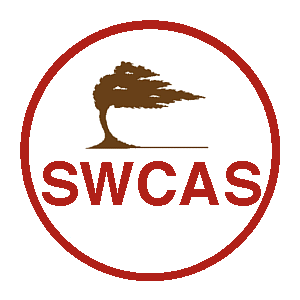
55th Annual Conference of
SouthWest Conference on Asian Studies (SWCAS)
November 6-7, 2026
Angelo State University
San Angelo, TX
Conference Theme:
Asian Studies in Motion:
Place, Power, and Possibility Across Asia
and Its Diasporas
Proposal submission deadline: June 1st, 2026
The 2026 SouthWest Conference on Asian Studies invites proposals for papers, panels, and roundtables that explore Asia and Asian diasporas across time, space, and discipline. This year’s theme—Place, Power, and Possibility—asks how Asian worlds are shaped by movement and rootedness, by local histories and global circulations, and by the imaginative, political, and material forces that connect Asia to the world.
Hosted on the campus of Angelo State University in San Angelo, Texas, the conference welcomes work that bridges Asian Studies with regional contexts, including Arkansas, Louisiana, Oklahoma, and Texas. At the same time, we aim to create a vibrant intellectual space for scholars based in Asia and across the globe to join virtually and contribute perspectives grounded in local knowledge, transnational networks, and comparative frameworks.
We welcome submissions from the humanities, social sciences, arts, and community-engaged scholarship.
-
Transnational migration, labor, and remittance economies across Asia and the Americas.
-
Religion, ritual, and spiritual practice in Asian and diasporic communities.
-
Borders, borderlands, and maritime worlds in East, Southeast, South, and Central Asia.
-
Media, digital cultures, and AI in Asian contexts.
-
Art and performance.
-
Language, translation, and multilingualism in Asian and diasporic communities.
-
Education, pedagogy, and community-engaged research in Asian Studies.
-
Asian futurisms, speculative worlds, and technological imaginaries.
-
Archival innovation, oral history, and community-based documentation of Asian and diasporic experiences.
-
Geopolitics, regional security, and shifting power dynamics in Asia and the Transpacific.
-
Chips, semiconductors, supply chains, and technological sovereignty in Asia’s shifting economic power dynamics.
Roundtables, pedagogically focused panels, and submissions from graduate students and early career scholars are highly encouraged. The conference will primarily take place in person but will include a special presentation block for all-virtual panels. Note: Space for virtual presentations is limited and priority will be given to scholars based outside of the United States. Scholars who submit a paper to present in-person will be unable to present virtually.
Please submit either an individual or panel proposal using the following links:
SUBMISSION DEADLINE FOR INDIVIDUAL AND PANEL ABSTRACTS: June 1st, 2026
Panel Proposals of three to five papers should include the following:
-
a 200-word summary, including a brief description of each paper and the connection between them
-
a list of participants, paper titles, affiliations, and e-mail addresses
-
mode of presentation (in-person or virtual) [Note: All panelists must present in the same mode.]
Individual Paper proposals should include the following:
-
a paper title and 150-word abstract
-
the presenter’s name, affiliation, and e-mail address
-
mode of presentation (in-person of virtual)
Graduate Students: A limited number of $100 travel stipends will be available for graduate students presenting papers in person at the conference. Also, SWCAS awards a $200 prize for the best graduate student paper. To be considered for this award, graduate students must submit an abstract by June 1, 2026 and a full paper draft by October 1, 2026.
Undergraduate Students: SWCAS will award a $200 prize for the best undergraduate student paper. To be considered for this award, undergraduate students must submit an abstract by June 1, 2026 and a full paper draft by October 1, 2026.
For further questions regarding submissions, conference logistics, or local arrangements, please contact the conference organizers at swcas2026@gmail.com or visit the SWCAS website https://www.swcas.net/.
SWCAS Board of Directors
Melody Yunzi Li (2027)
Min Suk Kim (2027)
Allison J. Truitt (2026)
Miao Dou (2026)
Christopher Born (2025)
John Barnett (2025)
SWCAS Officers 2023-24
Zhaojin Zeng, President
Laurie Dickmeyer, Vice President
Aryendra Chakravartty, Past President
Leah Renold, Secretary-Treasurer
Miao Dou, Director of Communication and Social Media
Jooyoun Lee, CoC Rep
2025 SWCAS Leadership Team
President: Zhaojin Zeng
Vice President: Laurie Dickmeyer
Past President: Aryenda Chakravartty
Treasurer: Leah Renold
Secretary (interim): Miao Dou
CoC Rep: Jooyoun Lee
Program Committee: Laurie Dickmeyer
Outreach and Special Initiatives Committee: Melody Yunzi Li
Local Organizing Committee: Zhaojin Zeng
Director of Communication and Social Media: Miao Dou
Assistant Director of Communication and Social Media: Haoran Ni
Annual
Click here to access former programs and other information about SWCAS Annual Meetings.
Past Meeting:
Nov 8-10, 2025
Texas A&M University-San Antonio, San Antonio, Texas
In Person & Online
The 2025 SWCAS conference was a huge success. It drew over 150 in-person and about 60 online registered participants from across the U.S. as well as India, China, Taiwan, the Philippines, and several other Asian countries. We welcomed scholars from national institutions such as MIT and Boston College, along with colleagues from major Texas universities, including UT-Austin, Rice University, SMU, and UNT. We had faculty, graduate students, and undergraduates all engaging with one another, and the energy throughout the conference was fantastic.
SWCAS 2023, at University of Houston
Click here for a PDF of the directory. If you would like to join the SWCAS Mailing List, all you will need is an institutional email address. Send a request to the SWCAS administrator in the contact form below.
Journal of the Southwest Conference on Asian Studies
Click HERE to access the Call for Submissions to the 2021 edition of the Journal.
* Our logo depicts a tree bending in the prevailing southwest wind, inscribed in a red ochre circle symbolizing the southern sun. Our conference in general encompasses Asianists located in Oklahoma, Texas, Arkansas, and Louisiana, although anyone is invited to join.

